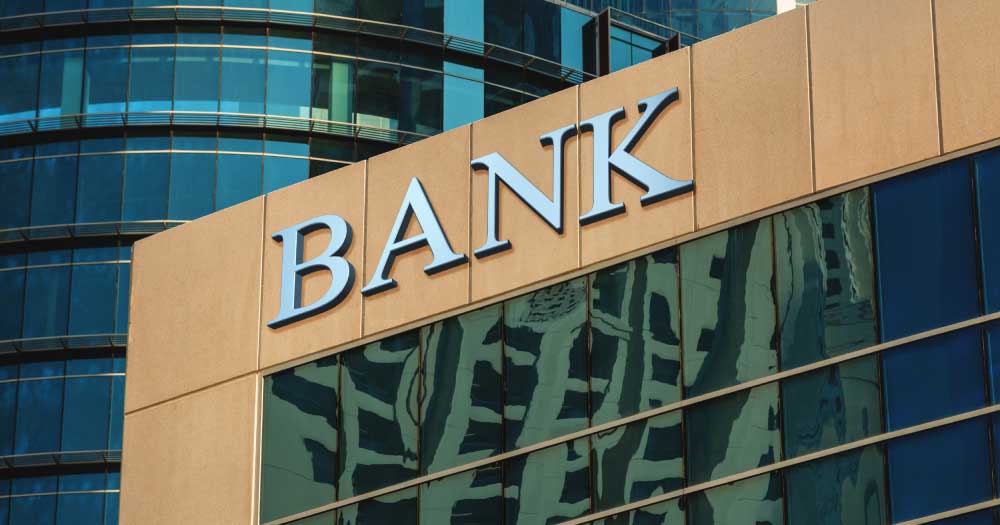
The Role of Mobile Apps in Fintech
The way we handle money is changing with each passing day. It’s becoming easier and quicker to manage money. When it comes to fintech (financial technology), these applications help people with banking, payments, and investing right from their mobile screen.
With more people using digital tools, mobile apps have become an important part of how we manage money and make financial choices.
Fintech changed the dynamic of the financial world. Mobile apps made finances easier, like a cakewalk. It’s no longer a luxury but a must-have thing. Not just for businesses but for personal finance management as well. As fintech is growing, so is the app’s technological advancement. Features are being added, and things are getting faster and easier.
According to a report by App Annie, banking and fintech app downloading records are skyrocketing. Just till 2021, 4.6 billion people downloaded the app. This suggests people’s adoption rate of app technology. Mobile apps have made life easier than ever for people who do not have access to banking. For instance, in 2022, China recorded $41.5 trillion transactions via Alibaba and Tencent accounting.
Mobile apps in fintech aren’t just game changers—they are the game now. The world’s population is 6.3 billion, and so is the number of smartphones worldwide. This revolutionized mobile banking, making money transfer and budgeting easier than ever.
Benefits of Mobile Apps in Fintech

Accessibility and Convenience:
Imagine the times when you had to wait for days and sometimes even months to receive your payments. And when you do receive it, you have to go to the bank and wait until your things are done. Sounds like quite a hassle? It’s true. With the ease of the app, you can manage finances, send money, or pay bills—all while sitting in your living room or waiting for the train. That’s called accessibility and convenience. You don’t have to wait for banks to open, but financial services are available 24/7. All just a few taps away.
Improved Customer Experience:
Fintech apps are extremely user-friendly. The sole purpose of its existence was to enable users to have self-service. Interfaces that make navigating financial services as easy as scrolling through your social feed. Personalized notifications and real-time updates will allow you to keep track of everything.
Efficiency in Financial Transactions:
Time is money, and fintech apps save you loads of both. Quick, seamless transactions make sending money just a blow of air, contrary to a chore that demands your energy and time. Day-by-day advancement makes it error-free and, more efficient and secure with tempmail.
How Mobile Apps Shifted the Dynamic of Fintech
Fintech is booming, and mobile apps are its driving force. Here’s a rundown of how apps are changing the game.
Personalized User Experience
Fintech sounds like a boring thing that is all about charts and numbers. But in reality, it’s more about personalization. Mobile apps are taming artificial intelligence to create a customer-centered experience. With real-time services and easy-to-use interfaces, financial matters become as easy as online shopping.
AI & Personalization
App analytics provide users with information that feels like financial advice from their financial advisor. This level of personal care doesn’t just keep users hooked, but it builds trust and boosts their confidence in their skills of managing money.
Contactless Payments: The New Norm
Passing cards and paying around with cash is still in trend. But Mobile apps have even made it easier with QR codes and NFC technology. It allows users to wave their phones for a quick, germ-free checkout. You don’t necessarily have to carry wallets, and you can go out just with a phone in hand.
Payments Via Cryptocurrency
Cryptocurrencies might sound like just a way of investment, but actually, they are becoming famous in the dynamics of payments. Fintech apps are all in for crypto trading. They provide trading facilities as well as accept digital coins for day-to-day transactions. Crypto replacing money became real. Though it sounds a bit scary, that’s true.
Voice Assisted Banking
Voice commands are another revolution. You don’t have to wait in the queue of lines. With voice-assisted banking, instructions can be given as easily as asking for the weather. And the best part? AI chatbots are on standby, turning complex banking lingo into a friendly chat.
Loan Based Applications
Long loan approvals are a thing of the past. All the credit goes to mobile apps. AI and data analytics are making the numbers easier, making borrowing money a swift and seamless experience. Financial relief is now just an app away.
High Security
In the financial world, safety is a must. Gone are the days when you had to worry about mobile apps’ safety. There are secure frameworks that guard your transactions better than any other thing. Encryption and secure data protocols ensure that your financial life stays private.
Mobile App Role for different Industries

Banking and Financial Industries
Better Security
A secure app is a trusted app. Take Bank of America; they’ve set the bar high with multi-layered security checks and real-time alerts. Blockchain is another buzzword in security, turning fintech apps into digital strongboxes.
Bill Payments
Fintech apps are making bill payments a breeze, allowing banks to offer more tailored loans. With fintech’s data-rich insights, financial services are getting a major upgrade.
Cashless Transactions
E-wallets and mobile payments have trimmed transaction times down to a blink. With UPI, the convenience of banking is literally in the palm of your hand.
24×7 Banking Access
Day or night, mobile banking apps are wide awake, ready to serve your financial needs whenever, wherever.
Better Customer Experience
A great customer experience is the heartbeat of fintech. Happy customers stick around, and mobile apps are making sure they’re more than just satisfied—they’re delighted.
Omnichannel Experience
An omnichannel approach means your financial services follow you seamlessly from screen to screen, device to device, ensuring a cohesive user journey.
eCommerce
Fintech developers are crafting apps that not only handle transactions but also serve as financial advisors, helping users navigate the complexities of modern-day finance with ease.
Mobile Wallet
Digital wallets are becoming the Swiss Army knives of finance. They are consolidating payments, investments, loans, and more. They’re transforming into super wallets, leading the charge in a cashless, cardless, and hassle-free financial landscape.
Mobile Apps for Financial Inclusion
Financial inclusion is when users and businesses have all the necessary and required products that they need for their successful business operations. Mobile apps are an important character in this story as they bridge the gap for those who can’t afford financial services through banking and financial institutions.
These apps work like banks. You have to make your account. You can transfer money and obtain loans. And the cherry on top is that you don’t have to visit any place like banks physically require. These apps are most effective in rural or remote areas. By simply downloading the app, the user can overcome all the infrastructural limitations.
The biggest achievement of fintech apps is that they include marginalized and disadvantaged populations from the lowest strata of the economy. They can make the transactions in the minimum amount.
These apps also provide educational material to these people. They can plan their finances better and get maximum advantage at no cost.
What are the benefits of Financial Inclusion:
- Wider Reach: People from remote locations can access financial services.
- Lower Costs: The cost of the financial services is reduced to the minimum.
- User Education: Users can improve their literacy rate from apps.
- Microtransactions: Users can make smaller transactions, and it’s useful for people with low income.

Mobile Apps for Investment and Trading
People who need help understanding the complex science of trading and investment can invest with these mobile apps. These apps have radically democratized the landscape of trading, allowing common individuals to participate in stock trading. They can benefit from mutual funds and do complex investments like vehicles.
These apps simplify the process for the users. They provide real-time data and analytics, which enables users to make informed choices. With features like automatic portfolio rebalancing, robo-advisors, and notifications, these apps serve both experienced as well as novel users.
Investment apps are also fostering a culture of saving and investing among younger demographics who were previously less engaged with traditional investment models. By offering a user-friendly platform, they’re making investment a more inclusive and approachable venture.
Advantages of Investment Apps:
- Ease of Access: Investment opportunities are at users’ fingertips.
- Real-Time Data: Immediate updates on market trends and asset performance.
- Educational Content: Resources to learn about investing strategies.
- Personalization: Customizable investment options based on user risk profiles.
Fintech Apps for Business and Commercial Use
Fintech apps are revolutionizing the way businesses operate. From facilitating quicker payments to managing invoices and payroll, these apps streamline a variety of financial processes. They enable small businesses to access services that were previously available only to larger corporations due to cost constraints.
Businesses can leverage fintech apps to perform real-time financial analytics, predict cash flow, and make strategic decisions based on actionable financial data. These apps also provide platforms for easier access to business loans, often with quicker approval processes and less paperwork than traditional banks.
Benefits for Businesses:
- Efficient Transactions: Swift processing of invoices and payments.
- Financial Planning: Tools for budgeting and forecasting future finances.
- Access to Capital: Quick and easy application processes for loans.
- Automated Bookkeeping: Reduce manual errors and save time on financial record-keeping.

Conclusion
The integration of technology in finance through mobile apps has fundamentally reshaped the landscape of personal and business finance. Offering convenience, efficiency, and enhanced security, FinTech mobile apps have opened the door to a world where managing finances is more accessible and user-friendly than ever. As we look to the future, these apps will continue to evolve, bringing innovative solutions to traditional financial challenges and leading the charge towards a more inclusive financial ecosystem for users worldwide.
FAQ’s
What is a fintech mobile app?
A fintech mobile app is a digital platform for managing financial operations like payments, investments, and savings on mobile devices.
What are the benefits of fintech app development?
Fintech apps offer easy access to financial services, personalized user experiences, increased transaction efficiency, and robust security features.
What are the goals of a fintech app?
The goals include simplifying financial processes, enhancing user engagement, and promoting financial inclusion.
What is the role of technology in fintech?
Technology underpins fintech innovation, providing the infrastructure for secure, fast, and reliable financial services.
How do fintech apps contribute to financial inclusion?
They provide accessible financial services to a broader audience, including those without traditional banking access.
